The Edible Prairie Project | Local Solutions for Communities Facing Food Insecurity
On a warm spring afternoon in Gillette, WY, patrons line up outside the boys and girls club to receive a basket full of fresh, locally grown produce, containing a variety of food including lettuce, radishes and local honey. These baskets are offered to the community at tiered pricing to fit each individual’s budget and encourage a well-balanced diet regardless of their financial situation.
Megan Taylor and Erin Galloway met at the Gillette Farmers Market through the Campbell County Master Gardeners in 2015. Megan was a new Master Gardener Volunteer and Erin was the new Market manager. Erin was farming through her family ranch and Megan had previous experience community organizing around local food issues as an organizer with Powder River Basin Resource Council. Both shared a deep appreciation for the importance of food and how it brings communities together. Through their time together at the farmers market, Megan and Erin began to bond over their passions for local foods, their community and how they could address some of the issues facing these two things on a local level.
Erin Galloway poses for a portrait in the EPP greenhouse.
The main issue they saw through working at farmers markets, is that while they are great for both the local community and farmers, farmers markets are often out of reach for low to moderate income families. In 2019, Megan and Erin got together and started a nonprofit called the Edible Prairie Project (EPP). “One of our main goals was to make local food more available, affordable and accessible, and we do that through our veggie basket program,” said Megan. Produce grown on Erin’s family farm is offered to the local community at both discounted tiered prices and free-of-charge depending on each family’s or individual’s financial situation. The EPP greenhouse is lush with fresh lettuce, radishes, and other produce waiting for harvest for weekly basket distribution.
In Wyoming, studies show that one in five children struggle with food insecurity. Compounded with layoffs and the impacts of COVID-19, food insecurity is an increasing issue across the United States. Food insecurity is defined as a household-level economic and social condition of limited or uncertain access to adequate food. As of 2018, data indicated that approximately 12.3% or 15.6 million households in the United States were food insecure at least some time during the year.
Offering produce for free and at discounted rates is made possible through EPPs partnership with Dr. Christine Porter from the University of Wyoming and the Equality State Research Network through which EPP received a community-based research grant that allowed them to study the impact of the veggie baskets on the SNAP families that get their produce through EPP. The study also looked at household food security and household vegetable consumption. “That grant allowed us to offer our veggie baskets for free last year which was really amazing because with the impacts of COVID we felt strongly that we needed to offer them for free,” said Megan. With the help of a grant from CBH Co-Op and CENEX, and their community supporters—people who purchase veggie baskets from EPP and make additional donations to the cause – EPP will be able to continue the research study through the 2021 veggie basket season. “I grow my own food but I really liked that this program helps make produce more accessible to everyone in the community. I come here for produce to give additional support to the program and to help it keep running,” said Kelly Barlow, a basket recipient and community supporter of EPP.
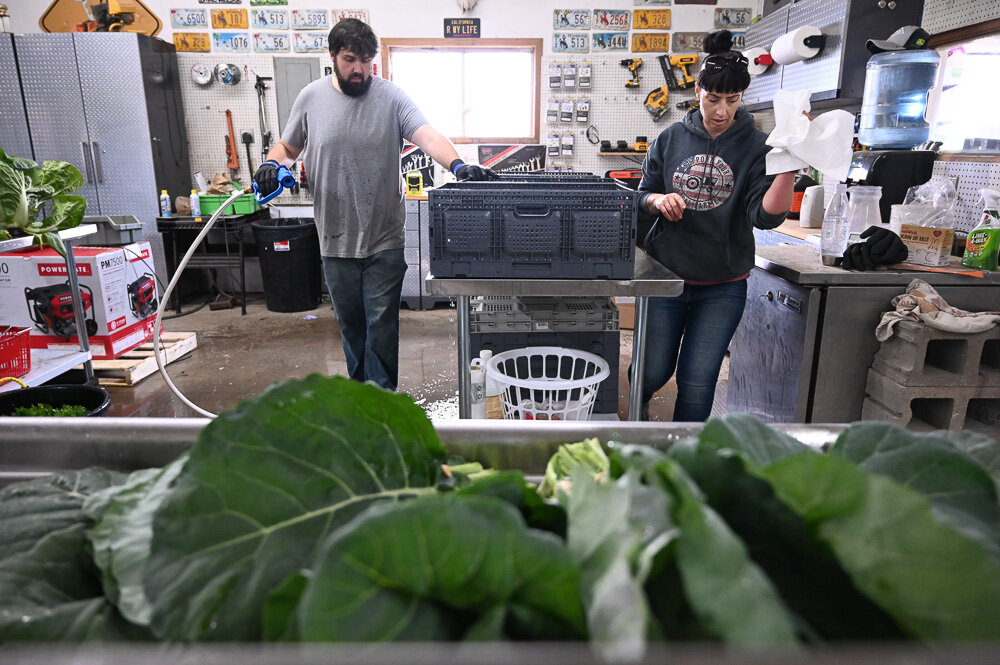
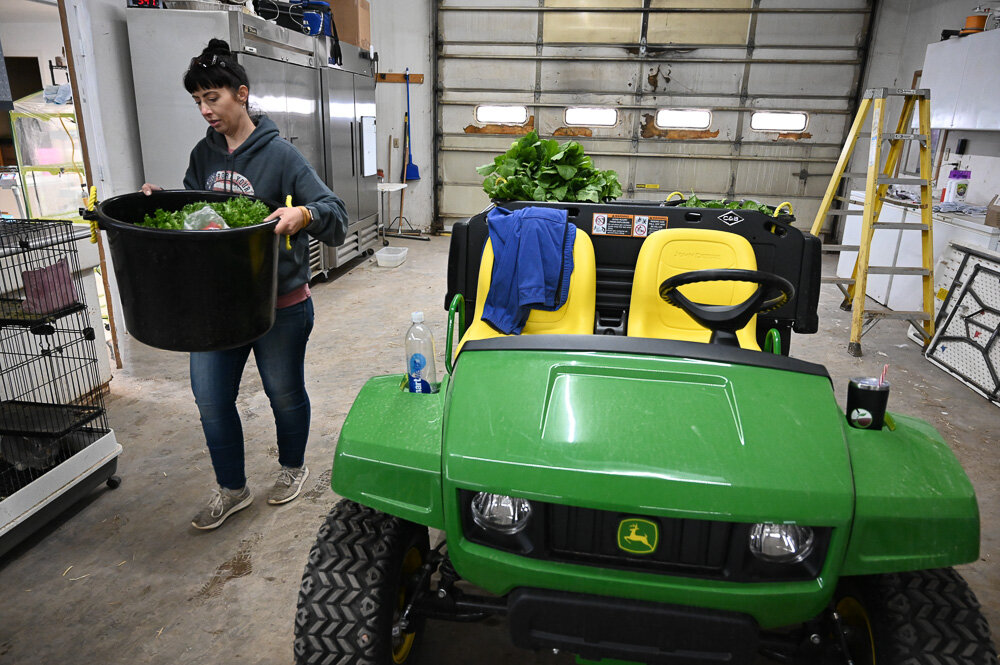
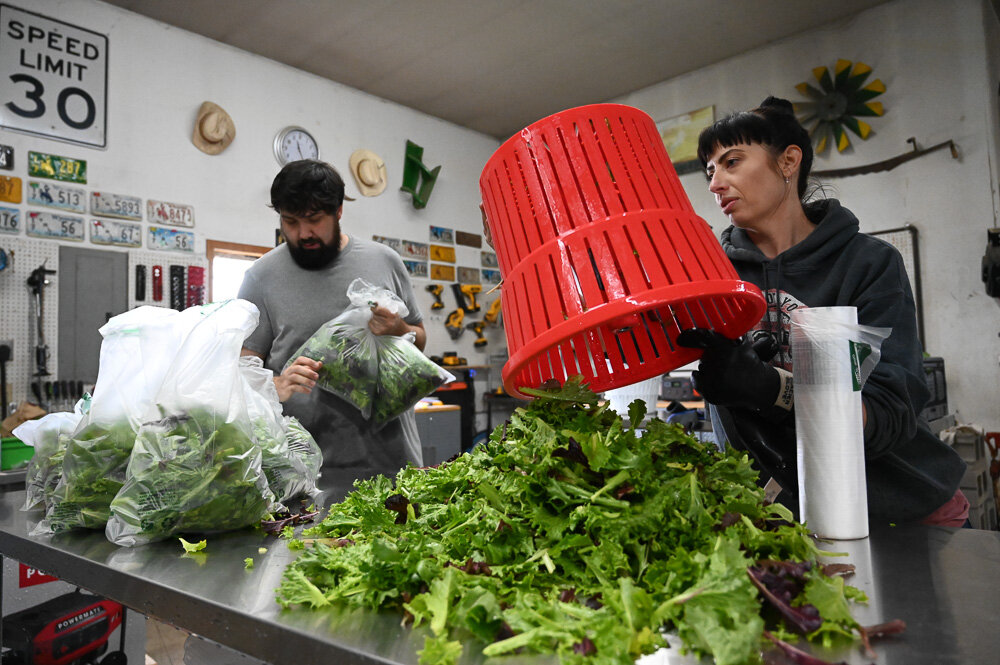
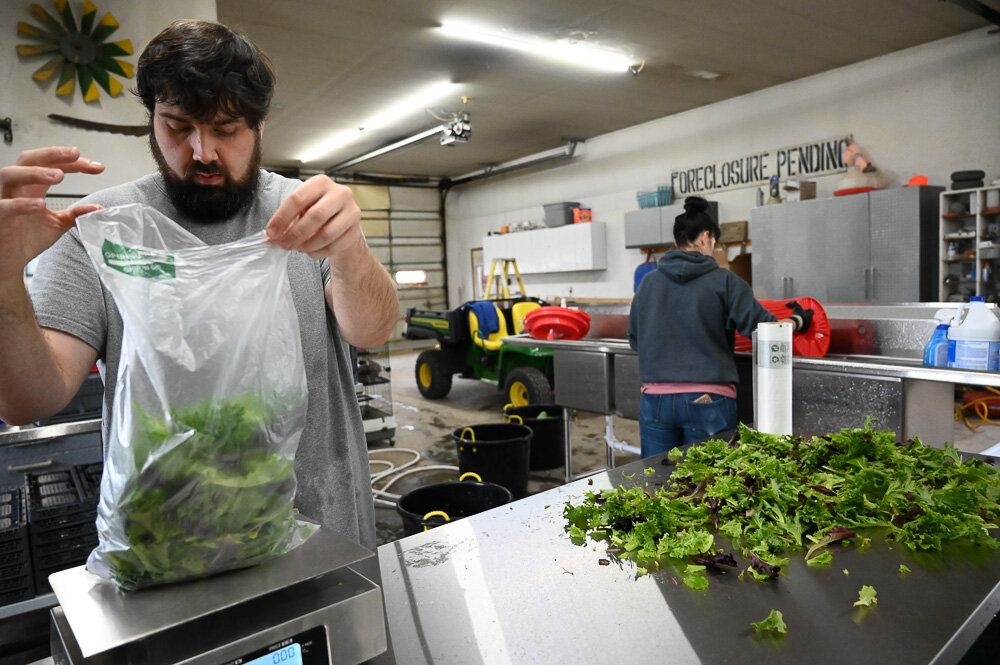
The study showed that amongst veggie basket recipients, the average vegetable intake was 2 per day before the veggie basket program and increased to 2.8 vegetables per day after being a part of the program. The study also showed approximately a 22 percent increase in food security through the basket program. “This program helps me to be able to give my kids produce and include a vegetable with every meal and helps me supplement our dinners until I can grow my own food,” said Kayli, a veggie basket recipient.
The second issue EPP seeks to address is the lack of producers in their area. “In Campbell County, we're not growing enough local food to service our local population,” explained Megan. Megan and Erin hope to continue attracting more and more local producers for their veggie basket program. While the veggie basket program is supplemented by the produce that comes from Erin’s farm, there’s also room in the program to purchase from producers. This creates a guaranteed customer base as well as cuts out marketing costs for the farmer. They’re hoping to turn hobby gardeners into market farmers.
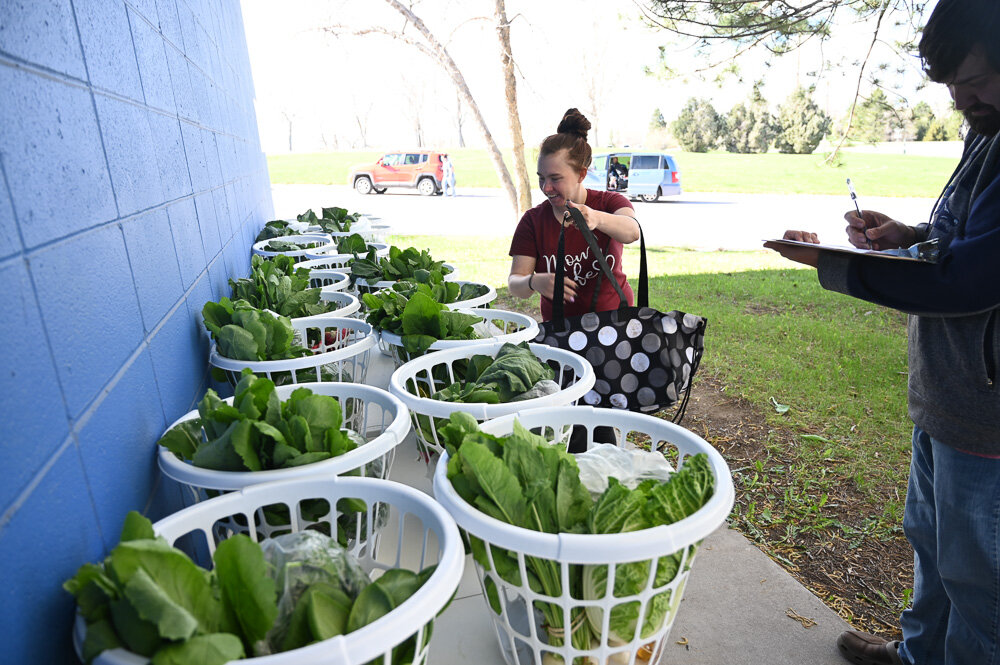
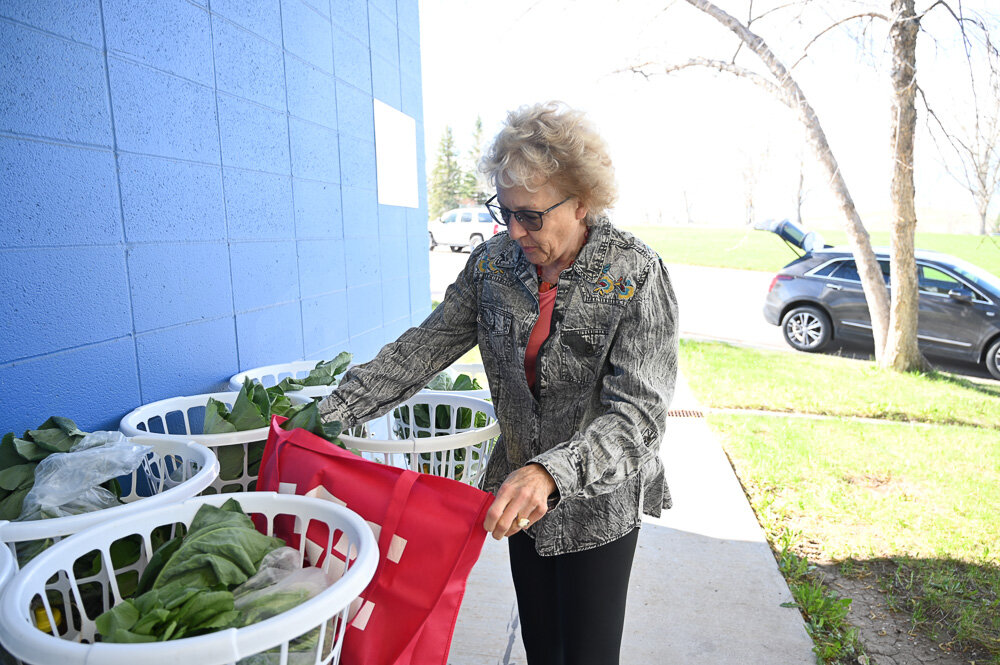
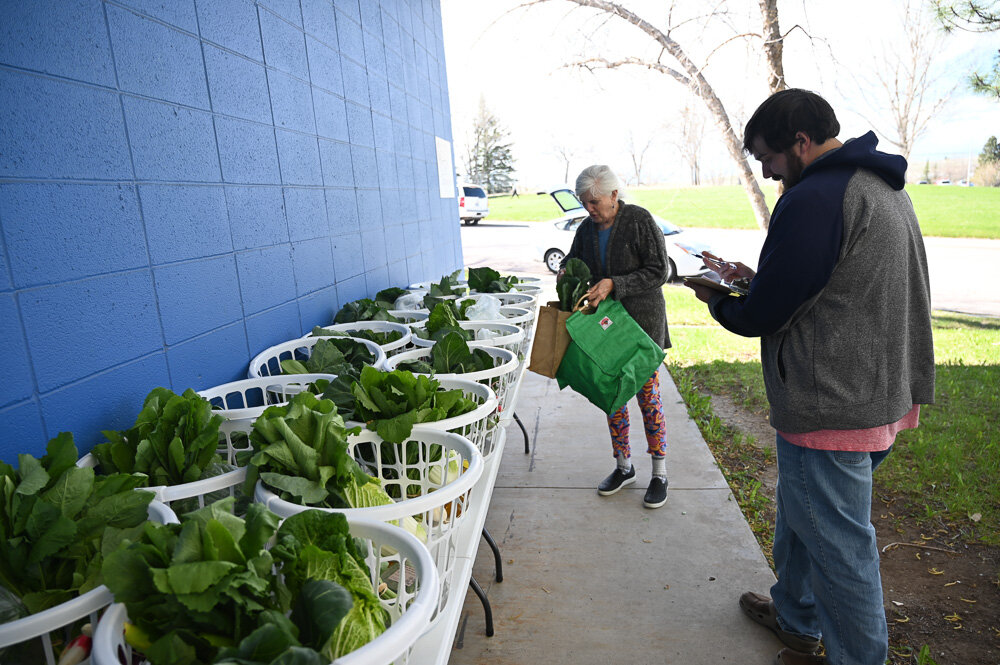
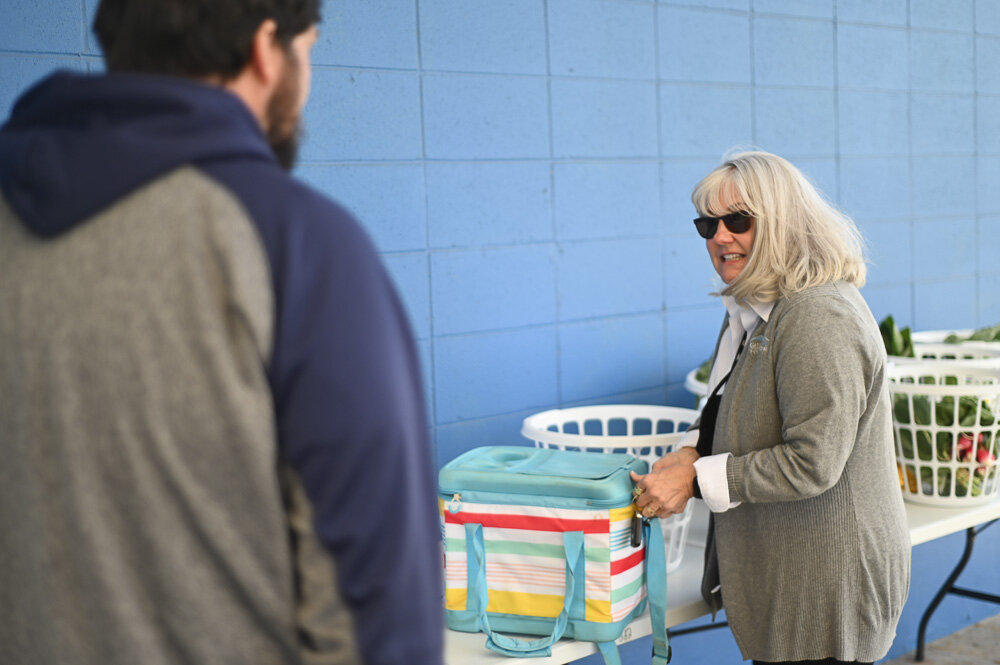
EPP hosts monthly grower meetings where they discuss planting schedules, how to plant to scale, and what people should grow to keep a diverse mix of produce going out to customers. EPP prioritizes buying produce from farmers that identify as women, new and beginning farmers, military veterans, and socially disadvantaged. “The veggie basket program is our pride and joy because it just fills all aspects of our mission, which is working to get local food in the hands of children and families that need it most, in order to build more fair, resilient, and sustainable community food systems. Through that veggie basket program, we're not only helping local families but we're also helping local farmers and ranchers,” said Megan.
On summer weekends, EPP runs a meal program for kids. While this program currently has a heavy focus on prepackaged foods they also include one fresh fruit or vegetable in each weekend food bag which they try to source locally. This is another market for local farmers while providing a resource for families with children. EPP works with the local producers to set the retail price for the produce and then EPP buys that produce from the farmers at 80% and the farmers are able to write that other 20% off as a nonprofit donation.
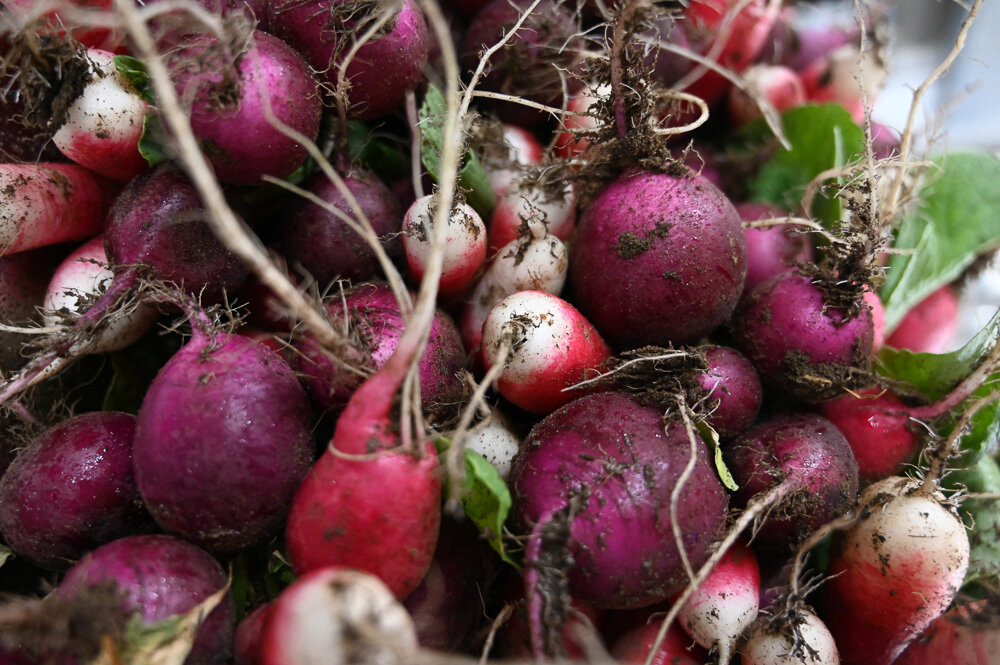
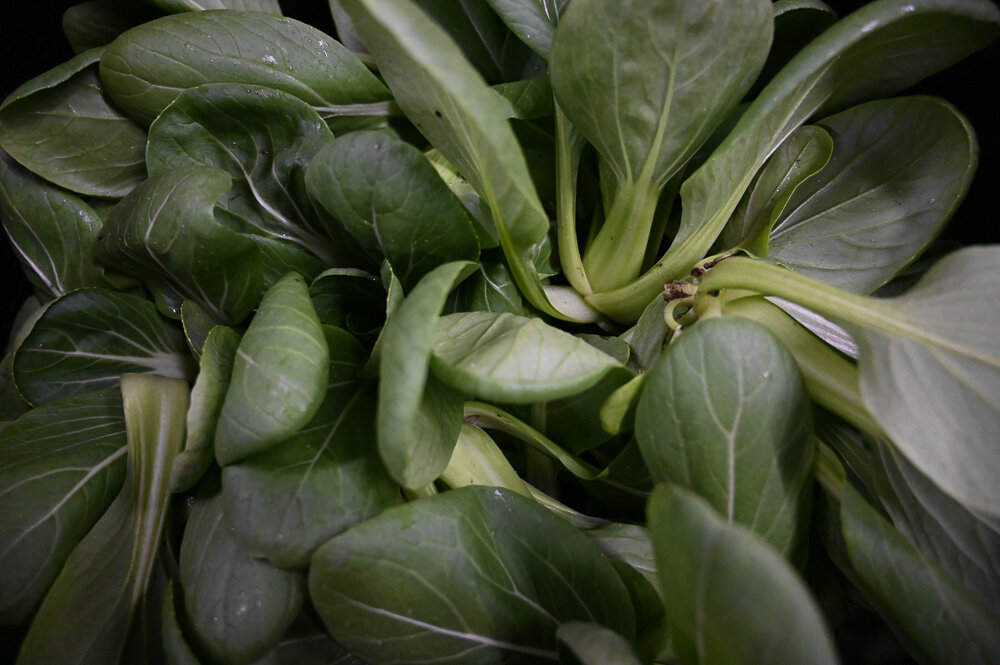
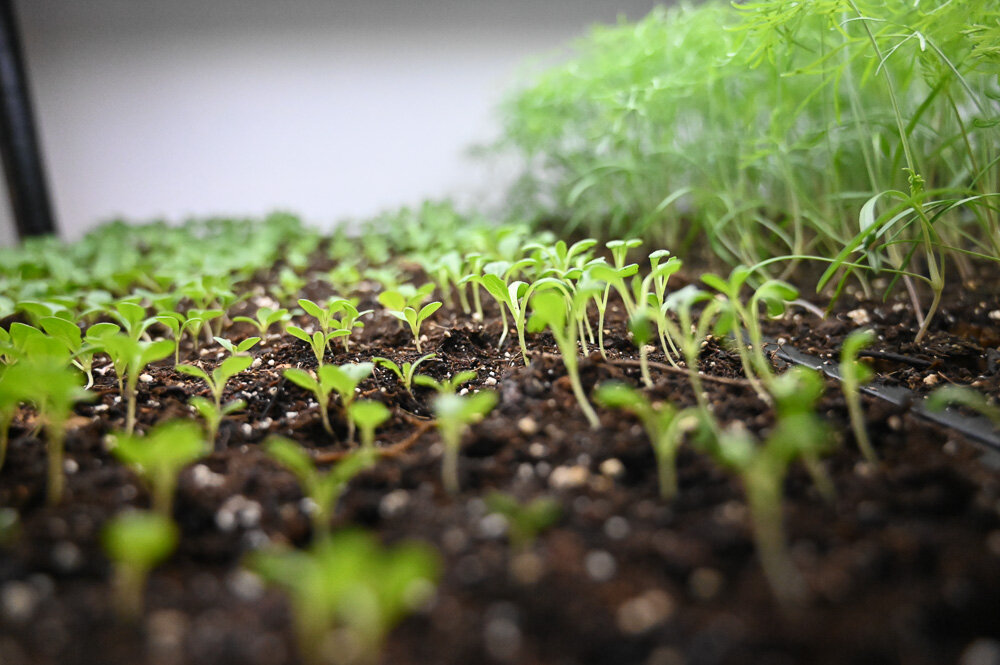
In collaboration with UW’s Cent$ible Nutrition Extension, EPP has successfully opened five Little Free Pantries across Campbell County. The pantries are continuously stocked with food, personal care and household items that are available to anyone at any time. The Little Free Pantries utilizes a network of upcycled newspaper dispensers located in Lakeside, Sunflower, and Bivens city parks currently, with more locations coming in the future.
Looking to the future, EPP hopes to get their own land for growing produce as well as creating demonstration gardens and plots for new and seasoned farmers to learn new techniques and share experiences. EPP also hopes to build a shared commercial kitchen where they can make value-added products from local foods to supplement the weekend food bag programs and shift away from the packaged, processed foods. “We all have an active role to play in this system. Even though we might think we're disconnected from it, nobody is,” explained Megan. “We're all connected and the decisions we make have a really important impact on our local food system. Even just shopping locally can generate so much more income for our local communities.”


